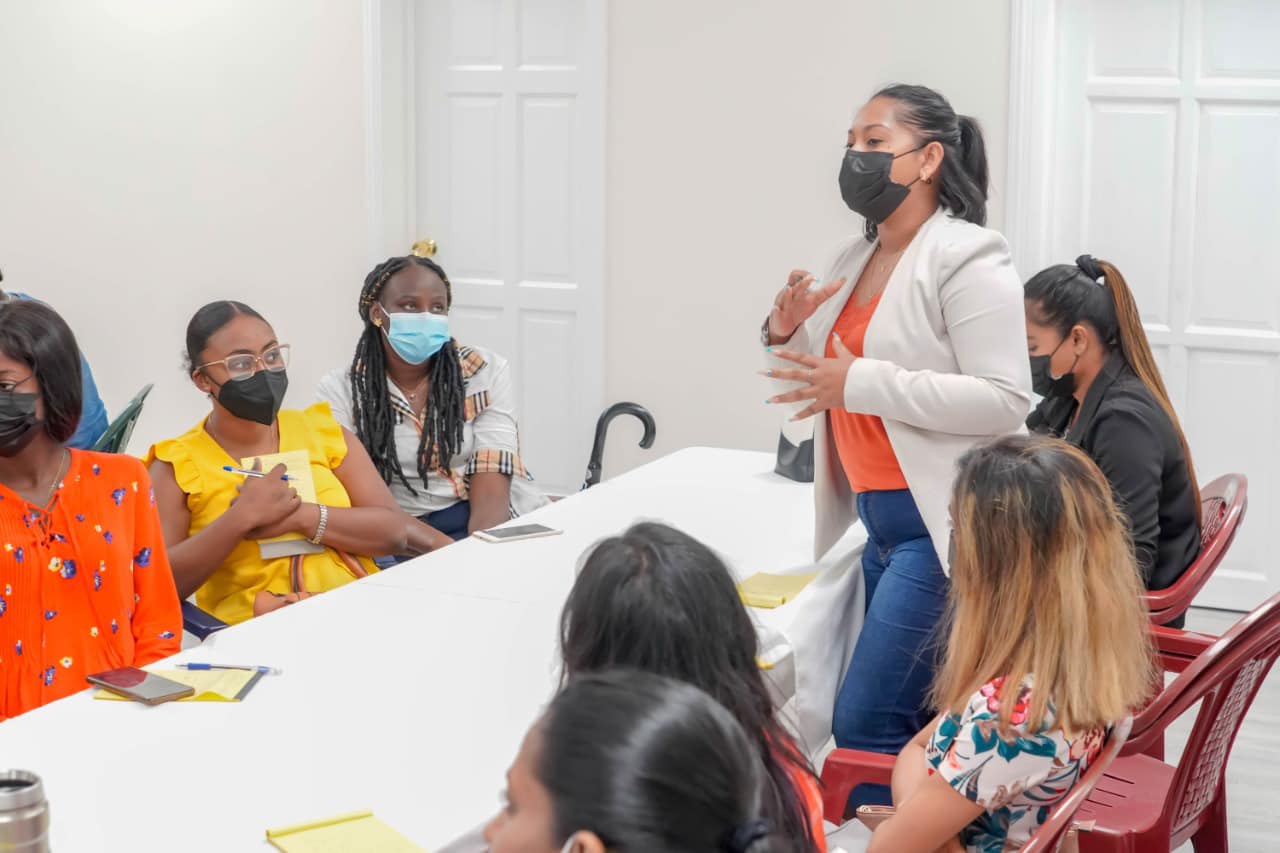
More than 10,000 people, primarily women, will benefit from training in specific areas that should help them generate an income through a new partnership between the Ministry of Human Services and Social Security and global online learning platform Coursera.
This initiative effectively allows the Ministry to significantly expand its Women Innovation and Investment Network (WIIN) programme, at a cost of about $50 million for one full year of training on Coursera.
By March next year, Minister of Human Services and Social Security Dr. Vindhya Persaud believes that more than 10,000 people would possess new skills. The programmes offered include life skills, childcare, caring for the elderly, digital literacy and others.
Each month, batches of 1,500 people should receive training. And each course has a component the encompasses entrepreneurship training.
Once the beneficiaries- particularly scores of vulnerable women- are trained, they should be able to gain employment or start their own businesses through support from other programmes offered by the ministry.

That includes accessing the ministry’s business incubator and benefitting from business mentorship, marketing and funding.
“This promises to transform the lives of thousands of people,” Dr. Persaud underscored.
She later added, “The intention is to ensure that whatever the person gains from Coursera is not random.”
Importantly, she noted that this new partnership will lead to a phasing out of the in-person classes that the WIIN programme has been offering. Instead, she explained that this new programme is meant to be complementary to the existing programme.
“It’s something that should not be seen as being done in a silo or in a vacuum,” she underscored.
Already, the WIIN programme trained 2,170 people. With the successes recorded, the programme received the more than 10,000 applications this year from people interested in benefiting.
Meanwhile, the Senior Advisor for Global Government partnership at Coursera Chad Pasha posited that this partnership will be the gender gap in Guyana being bridged. Essentially, he believes that once more women are empowered to earn an income, they would be able to meaningfully participate in the local economy and take care of their needs.











